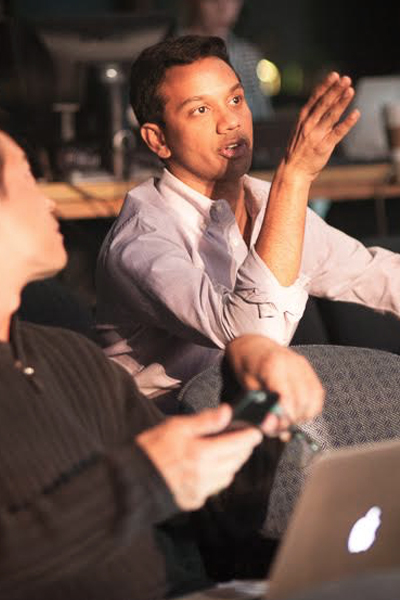For the first time in 23 years, and for only the fourth time in 51 years, East West Players — the nation’s longest-running Asian American theater company — is greeting a new artistic director. Los Angeles, say hello to Snehal Desai.
Desai, 36, who joined the company two years ago as a literary manager and artistic associate, officially took the reins from Tim Dang last Friday. The Indian American, Yale School of Drama graduate is an actor, writer and director.
EWP, which celebrated its 50th anniversary last year, is working toward increased inclusivity and providing a platform for Asian American-produced works to see the light of day as it goes forward.
“The future is bright for us,” Desai said, speaking to Kore on his first day on the job. “As we become a more and more multicultural community, we have to keep expanding as a home for diverse artists. As the demographic shifts, we have to have a strategic plan to be a stage for all Asian American artists, including Central [Asian] and Middle Eastern performers.”

“A Nice Indian Boy,” a EWP production about two men in love described by the Los Angeles Times as “‘Modern Family’ goes Bollywood,” was Desai’s first work with the company. “The Who’s Tommy” and “U.S. v. Bhagat Singh Thind” followed.
He’d previously directed at Pan Asian Rep, an East Coast Asian American theater company, and found an instant home there. “I found both mentorship and community, and the freedom to be myself, at these Asian American companies,” Desai said.
Coming to Los Angeles, Desai found guidance under Dang, who during his post produced nearly 100 new works and spearheaded efforts to transform the company into a mid-sized theater with a professional union contract for actors, designers and directors.
“Without doubt, Tim has very much been a seminal mentor in my life,” Desai said. “He cultivated the culture at East West Players. The notion of running a theater of color in this country is not easy, and you have to figure out how to sustain that through decades. I saw him navigate through it on a daily basis.”
Desai’s focus now is on building off Dang’s legacy, first by expanding family-friendly programming and second by placing emphasis on musicals and plays written by Asian Americans, in particular women.
The company, founded in 1965 by Asian American artists looking to move beyond the stereotyped roles available to them in Hollywood, has acted as a launching pad and as an outlet for storytelling to a huge number of Asian Pacific performers, among them George Takei, John Cho, Daniel Dae Kim, Kal Penn and B.D. Wong. More than 75 percent of all Asian Pacific performers in acting unions in Los Angeles have worked with the institution.
EWP plays a vital role in leading the movement in moving past labels still employed by theaters around the country — those deemed “Latino,” “black” or “Asian” — and clearing the stage of ethnic segregation, Desai said.
At the same time, the new artistic director is looking to influence a new generation of theatergoers — who hopefully feel what he experienced in his youth, that electricity between audience and performer that exists nowhere else — with a perspective on the many Asian American stories not told in schools. According to EWP, an audience of 56 percent Asians and 44 percent non-Asians come out to see its productions. Desai said he feels a responsibility to affect change through theater.
“What I want [people] to think about when they think of East West Players is that we are the home of both the best and the future of Asian American artists in this country,” Desai said. “That we’re telling universal stories that are seeking to have a dialogue, that they’re not just Asian American stories, but American stories.”







